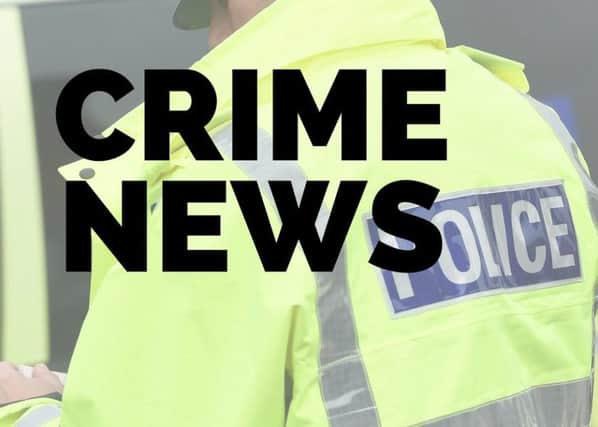Reports of online disability hate crime low in lincolnshire, bucking national trend


Charity Leonard Cheshire calls for more support for survivors of online disability hate crime across the UK and tech giants to up their game
Recorded incidents of online disability hate crime remain low in Lincolnshire (just four in 2017/18). This comes despite a 33 per cent increase in crimes across England and Wales between 2016/17 and 2017/18.
Advertisement
Hide AdAdvertisement
Hide AdThese new findings come from charity Leonard Cheshire, following Freedom of Information requests to all police forces across England and Wales.
Almost three quarters (32) of all forces responded, providing a broad picture of how common these crimes are becoming in other regions.
Lincolnshire police force area has some of the lowest numbers of recorded incidents. By contrast, Kent recorded 43 incidents in 2017/18, while Surrey recorded 25.
Increases nationally could be because forces have been proactive in increasing the confidence of survivors to report their experiences. However, Leonard Cheshire is warning that incidents picked up by police may just be the tip of the iceberg.
Advertisement
Hide AdAdvertisement
Hide AdJanine Howard, who experienced online disability hate crime and was supported by Leonard Cheshire’s hate crime advocacy services said: “People I don’t know take my photograph when I am out and about, they post it on social media for others to comment on. The comments are nasty, hurtful and leave me feeling frightened and angry. There is no escaping this online abuse if I want to use social media. It’s horrible to know that my family might see this abuse online.”
Leonard Cheshire’s chief executive Neil Heslop said: “We know online disability hate crime remains an underreported area and that disabled people may have reservations about speaking out. We suspect many crimes remain under the radar, with survivors never getting support and perpetrators facing no consequences.
“These offences can have a devastating impact on the lives of survivors. We know from our work with disabled people that hate crime causes long-term fear, anxiety and in some cases, isolation. Advocacy services that support disability hate crime survivors, like the one our charity provides in Northern Ireland, are a lifeline and enable us to work closely with police and upskill them in this area. Such services should be rolled out across the UK.”
Leonard Cheshire is also calling for global media companies, such as Twitter and Facebook to take online disability hate crime more seriously and protect all users. The charity is backing MP’s recommendations for Government and social media companies to directly consult disabled people on digital strategy and hate crime law so that the internet becomes a less threatening and more inclusive place for everybody.
Advertisement
Hide AdAdvertisement
Hide AdTerence McCorry, Leonard Cheshire disability hate crime advocate said: “There are many reasons a disabled person might not report a crime to the police. They may not think the incident is worth bothering police for or they may have had a bad experience reporting issues in the past. They may lack confidence in speaking out and traditional reporting methods, such as the phone, may not be accessible for their disability.
“I advocate for those who experience disability hate crime and work closely with police. In fact, a big part of my role is building better relationships between the police and survivors of hate crime. The officers I work with are passionate about disabled people feeling able to speak to them and I truly believe the advocacy work Leonard Cheshire does is helping everyone learn to take online hate crime more seriously.”
The charity also surveyed disabled people on their experiences of online disability hate crime and found 70 per cent of those who had experienced it had done so through Facebook or Facebook messenger app. The next most common medium was email, with 22 per cent of those who have experienced online disability hate crime reporting it having happened there. For 35 per cent of those who experienced online disability hate crime, it came from a stranger whose name they could see, whilst 34 per cent suffered it from someone who was anonymous. Concerningly, 36 per cent told nobody at all about the incident.
The charity is hoping its latest findings will cause everyone to take online hate crime more seriously, given the consequences it has on survivors. As one survey respondent from the UK told Leonard Cheshire, anonymously: “The online abuse affected my mental and emotional health, I was unable to sleep properly for months. Experiences like this make me worried for younger people with disabilities who may be more susceptible.”